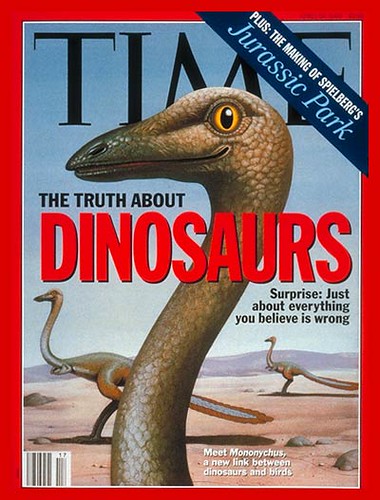
This is really exciting to me. It feels like there is serious ((i.e. people with degrees who gather at conferences and congresses and use words like R&D)) comprehension of the way that science-fiction is a kind of science-fact, and science-fact is a kind of science-fiction. In fact, the two are one and the same and the categorization is mostly useful to bookstores who need to divvy up what goes where. There’s an incredibly rich view of the creation and materialization of new ideas if you disallow the hard distinctions. Honestly. It’s not insurgent view; it’s an innovative view. Seeing these kinds of cross-overs and crosstalk and the blurring-of-lines ((as should be the case, I believe — for the good of the whole smash)) makes me want to go to something like this, even after swearing off of this sort of specialist conference.
It’s at least worth looking at this Creative Science Foundation ((big sounding puff there)) the “brain-child” of an intriguing Futurist ((how artisinal)) called Brian David Johnson which has a few links to some intriguing activities and work, including this Morrow Project that Intel ran where they got some writers to write about life in the future.
============
1st Call For Papers
2nd International Workshop on Creative Science (CS’11)
– Science Fiction Prototyping for Technology Innovation –
Sponsored by Intel & Published by IOS Press
Held in conjunction with The 7th International Conference on Intelligent Environments (IE’11)
Nottingham, UK. 25th-26th of July 2011
http://www.creative-science.org/
Background and Goals: This international workshop will explore the use of science fiction as a means to motivate and direct research into new technologies and consumer products. It does this by creating science fiction stories grounded in current science and engineering research that are written for the explicit purpose of acting as prototypes for people to explore a wide variety of futures. These ‘prototypes’ can be created by scientists and engineers to stretch their work or by, for example, writers, school children and members of the public to influence the work of researchers. The outcomes of these interactions are then fed back, to shape the science research and outputs. In this way science fiction prototypes act as a way of involving the widest section of the population in determining the science research agenda, thereby making science investment, and science output more useful to everyone ranging from companies, through scientists and engineers to the public, consumers and the government that indirectly fund R&D. In this way fictional prototypes provide a powerful interdisciplinary tool to enhance the traditional practices of research, design and market research. The goals of the workshop are to act as a catalyst of this new approach by acting as a forum where researchers from differing disciplines (notably science fact and science fiction) can come together to explore how to develop this area.
Participation: You are cordially invited to participate to the workshop either as a presenter or as someone simply wishing to learn more about this topic and, perhaps, join the discussion as a member of the audience. Participation is possible either by attending the workshop in person, or by participating via the Internet. For presenters (science researchers or writers) we are looking for short imaginative fictional stories (prototypes) of no more than 12 pages (and presentations of 20 minutes) based on recent scientific publications, which would act as motivation (or discussion) or how science research might be directed. Your fictional stories (prototypes) should include a short discussion (no more than 2 pages) of your published work (and how they relate to your story, including references to your work). The fictional stories (prototypes) should conclude with a short summary (half to one page, say) that provides an overall comment on your effort to use your fictional prototype as a means to motivate your future work. References should be included at the end of the paper. All fictional stories (prototypes) accepted will be published by IOS Press.
Thanks to Intel’s generous sponsorship we will pay the workshop registration costs for the 10 best Science Fiction Prototype (SFP) stories, as judged by the reviewing committee. In addition, a Samsung P1000 Galaxy Tab (eg ARM Cortex A8 1GHz, 16GB, 7 inch TFT LCD, 3G, BT 3.0, Android 2.2) will be awarded to the writer of the best Science Fiction Prototype.
Workshop Structure: The workshop will comprise a single day event and will include:
Presentations (papers) from science and engineering researchers on their own scientific papers/projects depicting how they foresee their research might impact future worlds.
Presentations from science fiction writers depicting aspects of their stories that they feel would be feasible and useful for scientists to try to implement.
The Venue: CS’11 will run in conjunction with IE’11 at Nottingham in the heart of England and a popular tourist destination attracting an estimated 1.3 million visitors annually. Many visitors are attracted by Nottingham’s nightlife, its history, the legend of Robin Hood, Sherwood Forest and popular history-based tourist attractions including Nottingham Castle. More details are given on the IE11 web pages .
Important dates:
Paper submission: 28th March 2011 (via the CS’11 paper story submission system)
Notification of acceptance: 25th April 2011
Paper final submission (with revisions): 9th May 2011
Workshop Fees:
Before 9th May 2011
– Regular Participant or Presenter (all non-students) = £144
– Student Participant or Presenter = £120.00
After 9th May 2011
– All categories = £180
Workshop Organisers:
Brian David Johnson (Intel Labs, USA)
Victor Callaghan (University of Essex, UK)
Simon Egerton (Monash University, Malaysia)